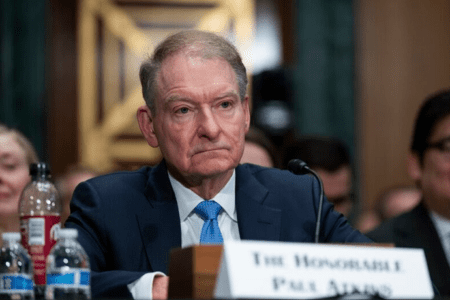The arrest of Tigran Gambaryan, Binance‘s Head of Financial Crime Compliance, by Nigerian authorities in Feb 2024 highlights the increasing risks faced by compliance officers at major global corporations. Gambaryan, a former U.S. law enforcement officer with extensive experience in crypto-related investigations, now finds himself in a perilous legal battle, raising critical questions about the personal accountability of compliance executives.
Background:
Gambaryan’s career began in U.S. law enforcement, where he specialized in investigating financial crimes and played a key role in dismantling criminal marketplaces such as Silk Road and AlphaBay. After joining Binance in September 2021, he was tasked with strengthening the crypto exchange’s compliance and anti-money laundering frameworks. Despite his efforts to support international authorities, freezing over $2.2 billion in illicit assets, Gambaryan now faces charges in Nigeria related to money laundering and alleged regulatory violations by Binance.
Read more about the Tigran Gambaryan Case here.
His arrest underscores a troubling trend: compliance officers are increasingly being held personally accountable for their companies’ actions, particularly in industries like cryptocurrency where regulatory frameworks are still evolving. Jim Lee, Global Head of Capacity Building at Chainalysis and former Chief of the IRS Criminal Investigation Division, recently told Forbes that Gambaryan’s situation is deeply concerning. According to Lee, “Tigran is being unjustly held responsible for actions tied to Binance that were beyond his control as a compliance officer. It is troubling to see him punished for issues he had no involvement in.”
Legal and Regulatory Context:
The rise in personal accountability for compliance executives is part of a broader shift in regulatory enforcement. Regulators worldwide are cracking down on perceived corporate misconduct, particularly in industries prone to money laundering, fraud, or other financial crimes.
In November 2023, Binance settled in the U.S. for $4.3 billion for violations of the Money Laundering and Terrorism Financing Act. Changpeng Zhao (CZ), then-CEO of Binance, pled guilty and was sentenced to four months in prison. These regulatory actions demonstrate the severity of compliance failures in global companies, but they also raise questions about the extent to which individual executives like Gambaryan are responsible for corporate misconduct.
Lee’s concerns are echoed by other compliance experts, who note that individuals in these roles must walk a tightrope. On the one hand, they are tasked with ensuring that the company complies with complex and ever-evolving regulatory requirements. On the other hand, they are often constrained by the internal culture and operational decisions of their companies, which may not always align with regulatory best practices. This situation is further complicated in cases like Binance, which maintains an offshore headquarters, making it more difficult for law enforcement authorities to enforce regulations or hold executives accountable.
Increased Risk for Compliance Executives:
Gambaryan’s case is not an isolated one. As global companies, especially in the tech and financial sectors, face more intense regulatory scrutiny, their executives are increasingly at risk of being held responsible for corporate missteps. A parallel can be drawn to the arrest of Telegram CEO Pavel Durov in Paris, who is also being personally held responsible for the company’s alleged role in facilitating financial crimes. These cases illustrate the growing personal liability that compliance officers and executives face in today’s regulatory environment.
Read more about the Telegram Case here.
The arrest of Gambaryan has sparked diplomatic tensions between the U.S. and Nigeria. U.S. lawmakers have introduced resolutions calling for his release, and his continued detention has become a matter of international concern. His health has severely deteriorated during his detention, adding urgency to the situation.
Conclusion:
As the role of executives in general and compliance executives in particular grows more critical in global firms, so too does the personal risk they face. The arrest and detention of Tigran Gambaryan demonstrate the high stakes of these positions, particularly in industries subject to rapid regulatory change like cryptocurrency. While regulatory compliance remains essential, global companies must ensure that their compliance officers are not unjustly penalized for corporate misconduct that may be beyond their control.
In Jim Lee’s words, “It is troubling to see compliance officers punished for actions they had no involvement in.” As regulatory bodies continue to escalate enforcement actions, executives’ personal liability must be carefully scrutinized to ensure a fair balance between corporate accountability and individual responsibility.
Report Financial Wrongdoing
If you have information about financial wrongdoing or compliance misconduct, please report it to us through Whistle42, our whistleblower system.





